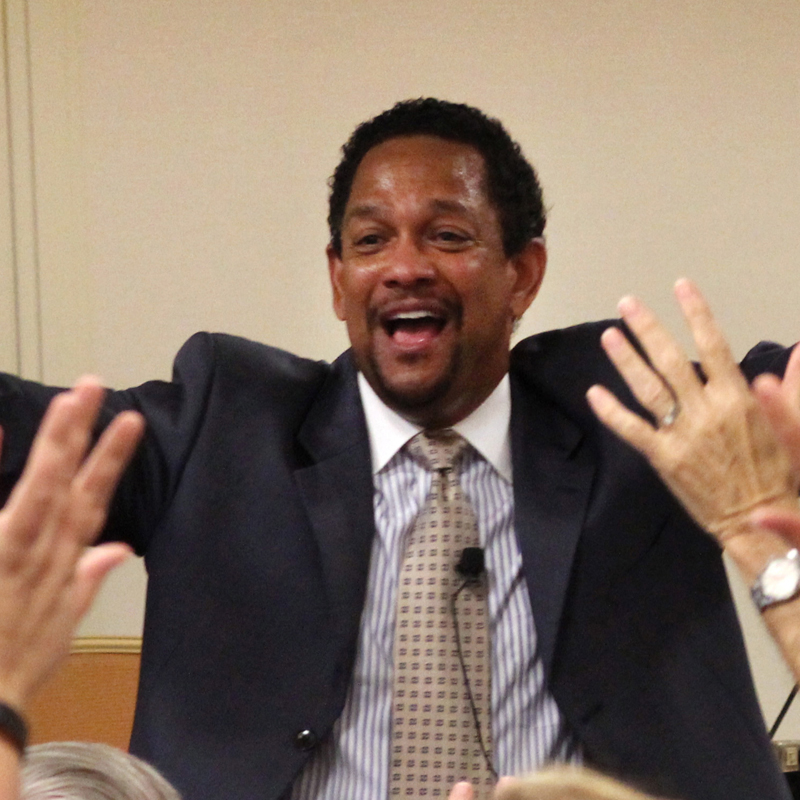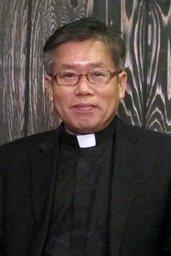Joining Jesus in the neighborhood
By the Rev. Stephen Handy
Dec. 1, 2017

Courtesy photo of the Rev. Stephen Handy.
Several years ago, I accepted an appointment at McKendree, the Mother Church of Methodism in the Tennessee Conference, located in downtown Nashville, Tennessee. Taking this appointment meant an invitational and risky adventure into a cultural context that I was unfamiliar with, but nevertheless unknowingly “being prepared” for all my life.
Being a disciple is a state of being where we learn to look and listen for God’s next move. As a follower of The Way, I believe that Jesus Christ is already waiting for us in our respective neighborhoods. And it is through a daily surrender of self and an abiding in Christ that I am able to rediscover the mind of Christ and develop different relationships through reconciliation.
Being the first African-American pastor appointed to predominantly Anglo McKendree after 222 years of history taught me the critical value of “relationships of difference.” Through these relationships where race, class and culture are at a point of intersection, the McKendree community was faithful in accepting the invitation for a compelling ride of transformation.
Transitioning from a monocultural into a multicultural congregation is one of the most challenging and fulfilling ministry journeys ever. The theological framework for today’s emerging McKendree is The Great Commandment (Matthew 22:34-40) and The Great Commission (Matthew 28:16-20). Through the years, McKendree continues to prayerfully and faithfully desire to “look and act like the Kingdom of God throughout the week and especially to reflect the kingdom of heaven on Sundays.” In the words of Dr. Lovett Weems: “In order for The United Methodist Church to thrive (and not just to survive), we need more people, more young people and more diverse people.” Our goal is for diversity and not for diversity’s sake, but for unity and inclusive through reconciling the power of Jesus Christ.
For me, reconciliation is one of the foundational elements for relational discipleship to occur. Any notice of Jesus in the biblical text awakens our cultural consciousness to others around us, which is risky. Without risky relationships, the redemptive acts of Jesus Christ are not evident. Our Life Groups, a reimagining of Wesley’s Class meetings, allow for groups to meet in the marketplace (or a third place) for missional engagement, deep discipleship, compassionate nurturing, and a high and respectable level of accountability. Life Groups are invited to meet around tables every week and experience the grace and invitation of Christ into each other’s lives.
Discipleship equals Diversity is one of our core value statements. And we have concluded that if a congregation is committed to the ministry of reconciliation, then diversity will come as a natural extension of the invitation to others. The gathering on Sunday and the leadership roles will reflect the congregation’s desire for oneness as Jesus prayed in John’s gospel, “I pray they will be one, Father, just as you are in me and I am in you. I pray that they also will be in us, so that the world will believe that you sent me” (John 17:21 CEB).
Becoming a multicultural, multiracial, multigenerational and, ultimately, an intercultural congregation/church like described in Acts 2 and Antioch takes prayer, strong and courageous leadership and a “humble willingness” to see the church through a multishade set of lenses or through the eyes of Jesus. As we viewed our future through these Christ-centered lenses, we realized that to journey with Jesus into the neighborhood, more awareness of ourselves and our neighbors was necessary. This awareness led us to acknowledging how we had participated historically and how we promoted an unconscious homogenous church instead of a healthy, vital and intercultural church that offered an option to the modern day monocultural, segregated church.
By “intercultural,” we mean the interaction of people across races, ethnicities and nationalities to learn to value and celebrate each group’s traditions. Intercultural churches and ministries bring people of various cultures together to learn from one another, giving equal value and power to each culture, preserving cultural differences and celebrating the variety of cultural traditions. Intercultural churches and ministries are defined by justice, mutuality, respect, equality, understanding, acceptance, freedom, peacemaking and celebration.[1] From the acknowledgement of our limited, monocultural perspective, we decided a great metaphor would be a bridge and “building bridges of hope through the love and grace of Jesus Christ,” positions us to become an agent of transformation.
As we continue to diligently walk through the reimagining process of our 230-year-old congregation, the ministry of reconciliation as Paul writes in 2 Corinthians 5:18 — “All of these new things are from God, who reconciled us to himself through Christ and who gave us the ministry of reconciliation” — is imperative as we work together for the greater good.
Serving in a downtown community that is 65 percent Anglo and 35 percent other ethnic groups positioned McKendree to become an intercultural congregation. In 2009, our congregation was 98 percent Anglo. Today we joyfully reflect our neighborhood. Intercultural churches must be willing to leave their comfort, share their privilege and live a life of love, humility and compassion with their neighbor. And if your neighborhood is monocultural, become aware of why it is that way. Seek to follow Jesus into the marketplace, then pray for God’s community, discern what God is saying, plan ways to reconcile your church and community, proclaim the gospel in creative and innovative ways, and actively wait on the LORD! Disciples are aware and expect God to be present!
The Rev. Stephen Handy is pastor and chief innovation and connection officer at McKendree United Methodist Church in Nashville, Tennessee.
[1] Intercultural Ministry Hope for a changing world by Grace Ji-Sum Kim & Jann Aldredge-Clanton, p. ix,x)
Return to the Many Voices, One Faith home page
Like what you're reading? Support the ministry of UM News! Your support ensures the latest denominational news, dynamic stories and informative articles will continue to connect our global community. Make a tax-deductible donation at ResourceUMC.org/GiveUMCom.




